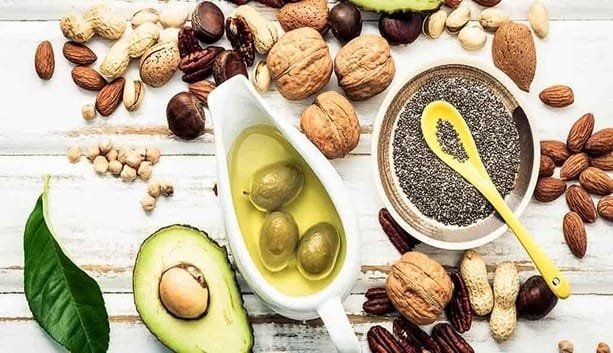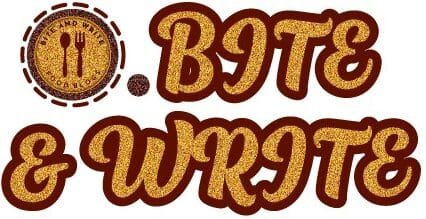Looking to gain weight in a nutritious manner? Find the top vegetarian and non-vegetarian foods that are high in calories, protein, and vital elements for weight gain. These high-calorie foods, which range from lean meats and fresh fish to creamy dairy and crunchy nuts, can help you naturally gain muscle, increase your energy levels, and reach your optimum weight.

Join us at bite and write as we dive into the world of healthy, calorie-rich eating, providing you with practical options, expert insights, and proven strategies for achieving your ideal weight naturally.
Essential Insights Into the Science of Weight Gain
In the journey toward healthy weight gain, understanding the core principles is essential.
What is a Calorie Surplus?
When you regularly ingest more calories than your body expels, you gain weight. We refer to this as a calorie surplus. Consider it like adding more fuel to your physique’s bank account.
Macronutrients and Their Role in Weight Gain
When it comes to weight gain, not all calories are created equal. The body needs a balanced intake of the three key macronutrients—proteins, carbohydrates, and fats—to gain healthy weight. Each of these plays a unique role, and understanding them is the first step toward building a solid weight gain plan.
Proteins: The Muscle Builders
Since proteins are necessary for the construction and repair of tissues, particularly muscles, they are frequently referred to as the building blocks of life. Gaining weight involves more than just gaining fat; it also involves gaining more lean muscle mass.
How it helps: Amino acids, which are found in protein, are necessary for both the formation of new muscle fibers and the healing of damaged muscles following exercise. The majority of your excess calories may be converted to fat rather than lean mass if you don’t consume enough protein.
Vegetarian-friendly sources: include quinoa, almonds, chickpeas, beans, tofu, tempeh, and dairy products.
Non-vegetarian sources: include fish such as salmon and tuna, eggs, chicken, turkey, beef, and lamb.
Advice: If you want to gain muscle, try to consume 1.2 to 2.0 grams of protein per kilogram of body weight per day.
Carbohydrates: Provide Energy
The body uses carbohydrates as its primary energy source. They power your daily activities, your workouts, and even your intellect. If proteins are the building blocks, carbohydrates are the laborers who supply the energy needed to put those blocks in their proper locations.
Sources: Rice, oats, potatoes, fruits, legumes.
Tip: Pick complex carbs (oats, quinoa, brown rice) for steady energy.
Fats: Add Calories & Regulate Hormones
Despite their unfavorable reputation, fats are your hidden weapon when it comes to gaining weight. You can improve your calorie intake without having to eat large amounts of food because healthy fats provide nine calories per gram, which is more than twice as many as proteins and carbohydrates.
Sources (Veg): Avocados, nuts, seeds, olive oil.
Sources (Non-Veg): Salmon, eggs, full-fat dairy.
Tip: Add nuts, oils, or nut butters to meals for extra calories.
Weight Gain: Healthy vs. Unhealthy
Despite the temptation to overindulge in burgers and fries, nutrient-dense foods that promote long-term health should be the source of actual weight gain.
Vegetarian Meals for Weight Gain
Here are the following high-calorie foods for vegetarians to gain weight naturally:

1. Nuts and Seeds
Among the most calorie-dense and convenient vegetarian foods are nuts and seeds. In addition to offering fiber, protein, and healthy fats, a handful of cashews, walnuts, or almonds can contribute hundreds of calories. In addition to promoting weight gain, these nutrients help maintain consistent energy levels and heart health. Omega-3 fatty acids, antioxidants, and minerals like zinc and magnesium are abundant in seeds like chia, flax, sunflower, and pumpkin seeds. They provide a nutritional boost in little servings and are a great addition to salads, smoothies, and cereal.
2. Nut Butters
Nut butter is your best buddy if you want rapid calories without having to consume big meals. In addition to protein and good fats, peanut butter has more than 100 calories per tablespoon. Smoothies, toast, and porridge can all benefit from the addition of almond butter, cashew butter, or even hazelnut spreads. In addition to being delicious, they are quite adaptable and can help you consume more calories without feeling stuffed.
3. Dairy Products
Dairy is among the most healthful vegetarian foods for weight growth. Whole milk, cheese, and yogurt are high in calories, but they also provide calcium, vitamin D, and high-quality protein that helps build muscle. A glass of full milk can add roughly 150 calories, and cheese slices or cubes make easy, high-calorie snacks. When topped with oats and strawberries, Greek yogurt turns into a nutrient-dense power breakfast for weight gain.
4. Legumes and Pulses
In addition to being high in protein and fiber, legumes such as kidney beans, chickpeas, black beans, and lentils are high in calories. They offer a balance of slow-digesting carbohydrates and plant-based protein, making them ideal for vegetarians trying to put on weight. In addition to filling you up, a bowl of chickpeas or a substantial lentil soup gives your diet the extra calories it needs. Legumes are much more efficient at conserving energy and promoting muscle growth when combined with rice or whole grains.
5. Whole Grains
Whole grains are perfect for weight gain since they are slow-digesting carbs that provide you with energy for a long time. Whole wheat bread, quinoa, brown rice, and oats are examples of foods that provide bulk calories and release energy gradually throughout the day. They are also rich in fiber, vitamins, and minerals, in contrast to refined grains. A bowl of oatmeal cooked with milk and garnished with honey and almonds, for instance, can easily have more than 400 calories per serving.
6. Fruits
In terms of calories, not all fruits are made equal. Among the finest calorie-dense foods for vegetarians are bananas, avocados, and dried fruits like figs, dates, and raisins. Bananas are a terrific pre- or post-workout snack since they give you immediate energy. Avocados are special because they are high in good fats, which provide food calories and a creamy texture. A little handful of dates or raisins can provide a substantial amount of calories, vitamins, and natural sugars. Dried fruits are little calorie bombs.
Meat-Based High-Calorie Foods
Here are the following non-vegetarian high-calorie foods for weight gain:
i. Red Meat
Red meat, including goat, lamb, and cattle, is one of the best foods for healthy weight gain. It has a lot of calories, good protein, iron, zinc, and vitamin B12, all of which are necessary for energy maintenance and muscular growth. In addition to promoting muscle repair, a serving of beef or lamb contains creatine, a naturally occurring substance that enhances strength and performance during exercise. Delicious ways to include calorie-dense protein in your diet include roasted goat meat, lamb curry, and grilled steaks.
ii. Poultry
Lean protein sources like chicken and turkey can become high in calories when prepared with healthy oils, marinades, or sauces. For instance, chicken drumsticks and thighs have more fat and therefore more calories, while chicken breast is great for growing lean muscle. Turkey is equally adaptable and can be used in salads, sandwiches, and roasted meals due to its mild flavor. Poultry dishes can be made more calorie-dense and filling by adding dressings made with avocado or olive oil.
iii. Fish and Seafood
Fatty fish such as salmon, tuna, mackerel, and sardines are perfect for weight gain because they’re packed with omega-3 fatty acids, high-quality protein, and healthy fats. These nutrients not only increase calorie intake but also support brain and heart health. A fillet of salmon can provide over 300 calories, making it both filling and energy-dense. Tuna, whether fresh or canned, is another great option for quick, protein-rich meals. Shrimp, crab, and other seafood add variety while boosting protein intake.
iv Eggs
One of the most economical, adaptable, and nutrient-dense foods for gaining weight is eggs. In addition to protein, good fats, and essential vitamins like choline and B12, a single big egg has roughly 70–80 calories. Since the yolk of an egg contains the majority of its calories and nutrients, eating whole eggs—with the yolk—is particularly advantageous. Eggs can be readily included in a variety of meals throughout the day, whether they are scrambled, boiled, fried, or added to baked goods and omelets.
Comparison: Vegetarian vs. Meat-Based Foods for Weight Gain
| Aspect | Vegetarian Foods | Meat-Based Foods |
|---|---|---|
| Calories | Moderate to high – nuts, seeds, avocados, dairy, dried fruits add dense calories. | High – red meat, fatty fish, poultry, and eggs provide concentrated calorie sources. |
| Protein Quality | Rich in unsaturated fats from nuts, seeds, avocado, and olive oil. | Complete proteins with all essential amino acids for muscle repair and growth. |
| Fats | It can be expensive depending on meat type (red meat, salmon) compared to poultry/eggs. | Contains both saturated fats (red meat) and healthy fats (salmon, eggs). |
| Nutrients | High in fiber, antioxidants, vitamins (C, E, K), magnesium, and potassium. | Rich in iron, zinc, vitamin B12, creatine, and omega-3s (from fatty fish). |
| Digestibility | Easier to digest for some; high fiber may cause bloating in excess. | Highly bioavailable proteins; heavier meals can be harder to digest for some people. |
| Affordability | Often cheaper (lentils, beans, grains) but some items like nuts can be costly. | Often cheaper (lentils, beans, grains), but some items like nuts can be costly. |
| Best Examples | Nuts, seeds, dairy, legumes, whole grains, avocados, dried fruits. | Beef, chicken, lamb, salmon, tuna, turkey, eggs. |
Tips for Healthy Weight Gain
- Instead of two or three large meals a day, eat five or six modest ones.
- Make use of cooking methods that increase calories, such as sautéing in olive oil.
- Gradually increase your portion sizes without overstuffing
Foods to Limit While Gaining Weight
Stay away from junk meals like chips, drinks, fried snacks, and sugary sweets when you’re gaining weight. Instead of promoting muscular growth, these offer empty calories that primarily increase body fat. Long-term health can be negatively impacted by processed meals’ high content of harmful fats, sugars, and salt. To gain weight in a sustained and healthful manner, go for nutrient-dense foods like fruits, whole grains, nuts, and lean meats.
Role of Exercise in Weight Gain
Strength training guarantees that the excess calories you consume are converted to muscle rather than fat. Put your attention on bodyweight workouts, resistance bands, or weightlifting.
Common Mistakes in Weight Gain Journey
- Skipping meals
- Relying on junk food
- Neglecting exercise
- Not tracking progress
Conclusion
Quality calories, not simply numbers, are the key to healthily gaining weight. You may increase your energy levels, gain muscle, and obtain long-lasting effects by eating the correct balance of animal and vegetarian foods. Keep in mind that consistency is essential; if you feed your body the proper nutrients every day, your weight goals will come naturally.
FAQs
1. What are the best fruits for weight gain?
Bananas, avocados, dates, and dried fruits like raisins are great calorie-dense options.
2. Is eating fast food good for weight gain?
Not really—fast food adds calories but often lacks essential nutrients for healthy weight gain.
3. Can vegetarians gain weight without supplements?
Yes! By including nuts, legumes, dairy, and whole grains, vegetarians can gain weight naturally.
4. How many meals a day should I eat for weight gain?
Aim for 5–6 smaller meals spaced throughout the day for better digestion and calorie intake.
5. What’s better: high-calorie shakes or solid meals?
Both are effective—shakes are quick and convenient, while meals provide more satiety and variety.

